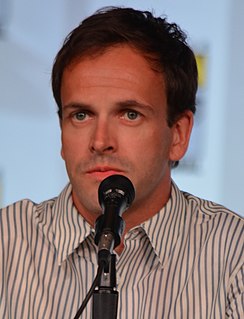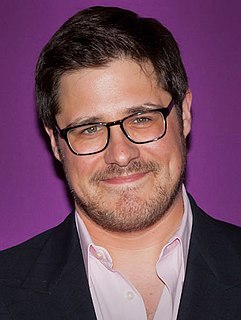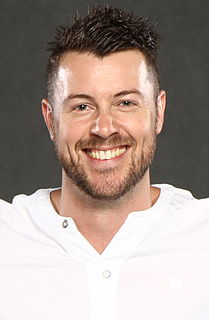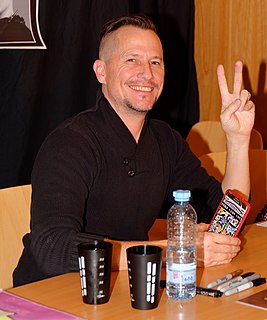A Quote by David Wenham
Some people have heard of The Method, which originally goes back to Stanislavski... he gave you six major pointers whereby you became that character and tried to fool your mind psychologically. That's it in a nutshell. Daniel Day Lewis is an example of somebody like that who stays in character between takes.
Related Quotes
'The 100' gave me this platform I never expected. I didn't expect the character to become anything. I was originally only signed up to do six episodes, and then it just sort of become this whole story and journey, which was an amazing character, a great journey, so that has been incredible, and I didn't expect anything out of it.
I meet Daniel Day-Lewis. He's just sitting in a chair on the set. Now, I had been told that Daniel Day-Lewis was kind of an intense person. And he's really not. He's really THE MOST INTENSE PERSON THAT HAS EVER EXISTED ON THE PLANET OF EARTH. He's not doing anything, he's just sitting in a chair, and I am terrified of him as if a jungle cat has wandered onto the set, like- WHOA! What do we do! Are we supposed to move around a lot or stay perfectly still?! What are the rules of Daniel Day-Lewis?!
When you are writing, you have to love all your characters. If you're writing something from a minor character's point of view, you really need to stop and say the purpose of this character isn't to be somebody's sidekick or to come in and put the horse in the stable. The purpose of this character is you're getting a little window into that character's life and that character's day. You have to write them as if they're not a minor character, because they do have their own things going on.
I've heard people tell me there's never been a gay character like Agron on TV before, and some fans have even thanked me because they now feel like they have a gay action hero, and it's very endearing to hear that kind of stuff. But I just played him the way he was and tried to do right by the character.
Whether I build a character from the ground up or develop one, whether within my own copyright or in licensed work, I can step into that character's mind. It takes a kind of voluntary dissociation akin to method acting, military planning, marketing, or detective work: to think like the other guy and work out what he's going to do next.
Well, you put a little piece of yourself into every character that you do. Even if you're playing some psychotic person, which of course I'm not, some part of you is in that character and it's hopefully believable. I always come back to the fact that my own instinct is better than something I build in my mind.




































